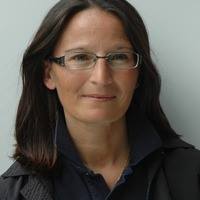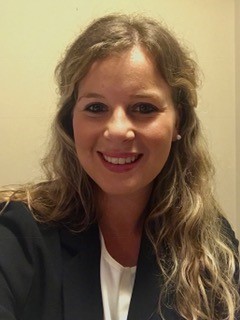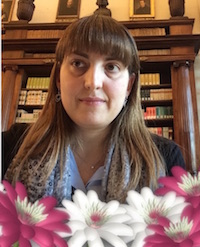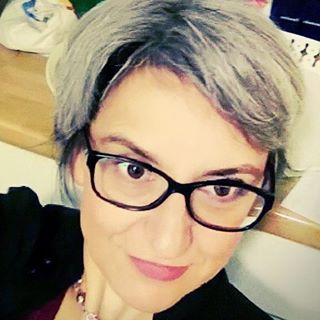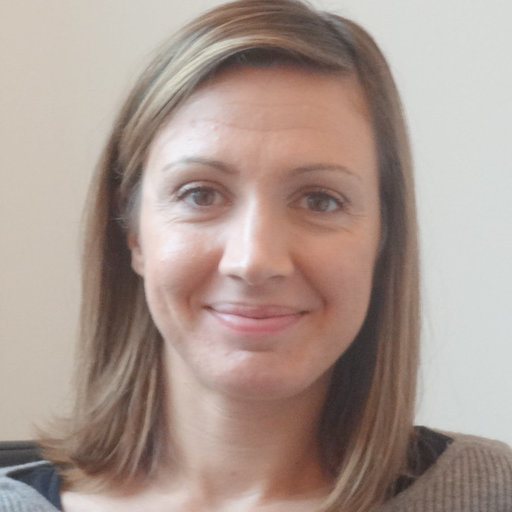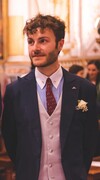Studying at the University of Verona
Here you can find information on the organisational aspects of the Programme, lecture timetables, learning activities and useful contact details for your time at the University, from enrolment to graduation.
Academic calendar
The academic calendar shows the deadlines and scheduled events that are relevant to students, teaching and technical-administrative staff of the University. Public holidays and University closures are also indicated. The academic year normally begins on 1 October each year and ends on 30 September of the following year.
Course calendar
The Academic Calendar sets out the degree programme lecture and exam timetables, as well as the relevant university closure dates..
| Period | From | To |
|---|---|---|
| I semestre (Lingue e letterature straniere) | Sep 30, 2019 | Jan 11, 2020 |
| II semestre (Lingue e letterature straniere) | Feb 17, 2020 | May 30, 2020 |
| Session | From | To |
|---|---|---|
| ESAMI LINGUE - sessione invernale | Jan 13, 2020 | Feb 15, 2020 |
| ESAMI LINGUE - sessione estiva | Jun 3, 2020 | Jul 25, 2020 |
| ESAMI LINGUE - sessione autunnale | Aug 24, 2020 | Sep 19, 2020 |
| Session | From | To |
|---|---|---|
| LAUREE LINGUE - sessione autunnale (a.a. 2018/19) | Nov 4, 2019 | Nov 9, 2019 |
| LAUREE LINGUE - sessione straordinaria (a.a. 2018/19) | Mar 30, 2020 | Apr 4, 2020 |
| LAUREE LINGUE - sessione estiva (a.a. 2019/20) | Jul 6, 2020 | Jul 11, 2020 |
| LAUREE LINGUE - sessione autunnale (a.a. 2019/20) | Nov 2, 2020 | Nov 7, 2020 |
| LAUREE LINGUE - sessione straordinaria (a.a. 2019/20) | Apr 7, 2021 | Apr 13, 2021 |
| Period | From | To |
|---|---|---|
| Festa Ognissanti (Lingue) | Nov 1, 2019 | Nov 1, 2019 |
| Sospensione delle lezioni | Nov 2, 2019 | Nov 2, 2019 |
| Vacanze di Natale (Lingue) | Dec 23, 2019 | Jan 6, 2020 |
| Vacanze di Pasqua (Lingue) | Apr 10, 2020 | Apr 14, 2020 |
| Festa della Liberazione (Lingue) | Apr 25, 2020 | Apr 25, 2020 |
| Festa del Lavoro (Lingue) | May 1, 2020 | May 1, 2020 |
| Sospensione delle lezioni | May 2, 2020 | May 2, 2020 |
| Festa del Santo Patrono (Lingue) | May 21, 2020 | May 21, 2020 |
| Sospensione delle lezioni | May 22, 2020 | May 23, 2020 |
| Festa della Repubblica (Lingue) | Jun 2, 2020 | Jun 2, 2020 |
| Vacanze estive (Lingue) | Aug 10, 2020 | Aug 15, 2020 |
Exam calendar
Exam dates and rounds are managed by the relevant Foreign Languages and Literatures Teaching and Student Services Unit.
To view all the exam sessions available, please use the Exam dashboard on ESSE3.
If you forgot your login details or have problems logging in, please contact the relevant IT HelpDesk, or check the login details recovery web page.
Academic staff
 angela.albanese@univr.it
angela.albanese@univr.it
 benedetta.binacchi@univr.it
benedetta.binacchi@univr.it
 elisa.destro@univr.it
elisa.destro@univr.it
 alice.fiorentino@univr.it
alice.fiorentino@univr.it
 dunia.houranimartin@univr.it
dunia.houranimartin@univr.it
 sara.paolini@univr.it
sara.paolini@univr.it

Pisaniello Valerio
 valerio.pisaniello@univr.it
valerio.pisaniello@univr.it
 +39 045802 8381
+39 045802 8381
 alberto.scandola@univr.it
alberto.scandola@univr.it
 massimo.scotti@univr.it
massimo.scotti@univr.it
 silvia.zollo@univr.it
silvia.zollo@univr.it
Study Plan
The Study Plan includes all modules, teaching and learning activities that each student will need to undertake during their time at the University.
Please select your Study Plan based on your enrollment year.
1° Year
| Modules | Credits | TAF | SSD |
|---|
1st foreign language2nd foreign language1st foreign literature2nd foreign literature1 module to be chosen between2° Year activated in the A.Y. 2020/2021
| Modules | Credits | TAF | SSD |
|---|
1st foreign language2nd foreign language1st foreign literature2nd foreign literature1 module to be chosen between the following3° Year activated in the A.Y. 2021/2022
| Modules | Credits | TAF | SSD |
|---|
1st foreign language2nd foreign language1st foreign literature2nd foreign literature1 module among the following (philology related to 1st or 2nd foreign language)1 module to be chosen between the following| Modules | Credits | TAF | SSD |
|---|
1st foreign language2nd foreign language1st foreign literature2nd foreign literature1 module to be chosen between| Modules | Credits | TAF | SSD |
|---|
1st foreign language2nd foreign language1st foreign literature2nd foreign literature1 module to be chosen between the following| Modules | Credits | TAF | SSD |
|---|
1st foreign language2nd foreign language1st foreign literature2nd foreign literature1 module among the following (philology related to 1st or 2nd foreign language)1 module to be chosen between the following| Modules | Credits | TAF | SSD |
|---|
Legend | Type of training activity (TTA)
TAF (Type of Educational Activity) All courses and activities are classified into different types of educational activities, indicated by a letter.
Russian Literature 2 (2020/2021)
Teaching code
4S002943
Teacher
Coordinator
Credits
9
Also offered in courses:
- Russian Literature 2 of the course Bachelor's degree in Languages and literatures for publishing and digital media
Language
Russian
Scientific Disciplinary Sector (SSD)
L-LIN/21 - SLAVIC STUDIES
Period
I semestre (Lingue e letterature straniere) dal Sep 28, 2020 al Jan 9, 2021.
Learning outcomes
The course aims at improving the fundamental knowledge of Russian cultural history acquired by students during the first year. At the end of the course students will be able to: 1) know the main events of Russian history and to understand the essential elements of modern Russian culture, focusing on 20th century; 2) apply the acquired knowledge in analysing the texts studied during the course, using the given references; 3) develop a personal opinion concerning the main topics covered in the course and to express them in a coherent and proper form.
Program
«Theatre as a Mirror of Russian Reality»
Theatre came to Russia late – just after the half of the 17th century. However it was welcomed with a big enthusiasm which never failed up to nowaday. We can consider it as a mirror, faithful notwithstanding it can be distorting, of Russian reality; theatre is impressively representative of the culture and history of this country. The first remarkable pieces date back to the 2nd half of the 18th century, as far as the main works of Russian dramaturgy are based on 19th and the beginning of 20th centuries. Right bridging the two centuries Russia will gain a pivotal role in the history of world theatre, non only thanks to its authors (Čechov, Gor'kij, Blok, Majakovskij, Bulgakov...), but also because of the birth in Moscow of the director’s theatre and of the scenic experiments which are at the base of most of contemporary scene’s experiences. The course will focus on the key moments of Russian theatrical history, by one hand with an analysis of a choice of the best dramatic texts, and putting them into their cultural and social context by the other hand. Namely at the centre of the attention will be the following aspects:
- the Aristocratic theatrical culture of the 1st half of 19th century
- Gogol’s role in the birth of grotesque at theatre
- Cechovian theatre and the birth of Stanislavskij’s and Nemirovič-Dančenko’s MChT
- Directors’ experiments of the 1st half of 20th century between hyperrealism and biomechanics
- Revolutionary “agit-prop” and theatre
- Soviet theatrical academism
BIBLIOGRAPHY:
Mandatory reading (in original or translation):
- An anthology of texts will be avalable at the beginning of the cours.
- A. Puškin, Mozart and Salieri / А.С. Пушкин, «Моцарт и Сальери»
- N. Gogol’, The Inspector General / Н.В. Гоголь, «Ревизор»
- A. Čechov, The Seagal / А.П. Чехов, «Чайка»
- A. Čechov, Oncle Vania / А.П. Чехов, «Дядя Ваня»
Optional reading: every student has to read and study at least one of the following works:
- D. Fonvizin, The Adolescent / Д.И. Фонвизин, «Недоросль»
- A. Griboedov, Woe from Wit (L’ingegno che guaio) / А.С. Грибоедов, «Горе от ума»
- A. Puškin, Little tragedies / А.С. Пушкин, «Маленькие трагедии»
- A. Ostrovskij, The Storm (or: Wolves and Sheep) / А.Н. Островский, «Гроза» (или «Волки и овцы»)
- A. Čechov, Three Sisters А.П. Чехов, «Три сестры»
- M. Bulgakov, The days of the Turbins (М.А. Булгаков, «Дни Турбиных»)
- V. Majakovskij, The Bedbug (or: The Bathhouse) В.В. Маяковский, «Клоп» (или «Баня»)
MAIN CRITICAL LITERATURE:
- AA.VV., Storia della letteratura russa. Il Novecento, diretta da E. Etkind, G. Nivat, I. Serman e V. Strada, Torino, Einaudi 1989.
- A.M. Ripellino, Il trucco e l’anima, Torino, Einaudi, 1974 e ristampe
- E. Lo Gatto, Storia del teatro russo, Firenze, Sansoni, 1963
- Ju.M. Lotman, La scena e la pittura come dispositivi codificatori del comportamento culturale…, in Ju.M. Lotman, B.A. Uspenskij, Tipologia della cultura, Milano, Bompiani, 1975 (e successive ed.)
- Ju.M. Lotman, Il teatro e la teatralità nel sistema della cultura all’inizio del XIX secolo, in Id., Da Rousseau a Tolstoj, Bologna, IL Mulino, 1984
- Ю. М. Лотман, Беседы о русской культуре. Быт и традиции русского дворянства (XVIII – начало XIX в.). Спб., Искусство-СПб., 1994 (e successive ed.)
Examination Methods
Aims: the aim of the exam is to verify:
- The acquisition by the students of the basic space-temporal and conceptual coordinates learned in the course
- The appropriate knowledge concerning the topic and the instruments analysed during the course and/or planned in the programme
- The ability to value independently e with a full knowledge of the situation the peculiar historical, social and cultural phenomena of Russia, above all those ones concerning the period analysed in the course.
Contents:
The exam will be about the contents included in the programme and about the literary, artistic and historic cultural materials analysed during the course.
Methods for conducting:
The exam is oral and is an interview during which the student must present with precision and showing the ability to judge independently about what has been learned during the course and the individual preparation. The programme is the same for both the attending and non-attending students: the last ones can find the necessary materials to study in the programme, in the lecture notes and on the e-learning internet page; they could ask the professor for additional material or explanations during the office hours if needed.
Arrangements for evaluating:
Single vote in thirties.
Type D and Type F activities
To discover all the teaching activities accredited by the foreign teaching college click here
Career prospects
Module/Programme news
News for students
There you will find information, resources and services useful during your time at the University (Student’s exam record, your study plan on ESSE3, Distance Learning courses, university email account, office forms, administrative procedures, etc.). You can log into MyUnivr with your GIA login details: only in this way will you be able to receive notification of all the notices from your teachers and your secretariat via email and also via the Univr app.
Gestione carriere
Attendance and location
Attendance is not mandatory.
More detailed information on attendance requirements, please refer to the “Regolamento del corso di studio”, available under the “Regolamenti” section in “Il Corso”. While the Student Handbook does not require mandatory attendance, it is recommended to confirm specific attendance policies with your professors for each course, lab, or practical training.
Part time enrolment is an option. For more information, visit the Possibilità di iscrizione Part time.
Classrooms and exam locations are:
Classes and exams are held at the following locations:
- Polo Zanotto (close to the Foreign Languages and Literatures building)>
- Polo Santa Marta
Student login and resources
Assegnazione tutore
Attività accreditate D/F
Calendario didattico dettagliato
Cambio lingua curriculare
Competenze informatiche
Competenze linguistiche (prima e seconda lingua)
Competenze linguistiche in triennale (terza lingua CFU F)
Compilazione del piano didattico
Corso di Lingua catalana a.a. 2024-25
Corso di Lingua portoghese
Erasmus+ e altre esperienze all'estero
Linguistic training CLA
Presentazione dei corsi di studio e Open day
Graduation
Saperi minimi
Stage e tirocini
Le attività di stage sono finalizzate a far acquisire allo studente una conoscenza diretta in settori di particolare interesse per l’inserimento nel mondo del lavoro e per l’acquisizione di abilità professionali specifiche.
Le attività di stage sono svolte sotto la diretta responsabilità di un singolo docente presso studi professionali, enti della pubblica amministrazione, aziende accreditate dall’Ateneo veronese.
I crediti maturati in seguito ad attività di stage saranno attribuiti secondo quanto disposto nel dettaglio dal “Regolamento d’Ateneo per il riconoscimento dei crediti maturati negli stage universitari” vigente.
- Tutte le informazioni in merito agli stage per futuri studenti sono disponibili alla pagina Stage e tirocini.
- Tutte le informazioni in merito agli stage per studenti iscritti sono pubblicate in MyUnivr - come fare per - stage e tirocini.
- Tutte le informazioni in merito agli stage per le aziende sono disponili alla pagina Stage e tirocini per azienze.
Ulteriori informazioni al seguente link https://www.univr.it/it/i-nostri-servizi/gestione-carriere-studenti-lingue-e-letterature-straniere/stage-e-tirocini-lingue-e-letterature-straniere
